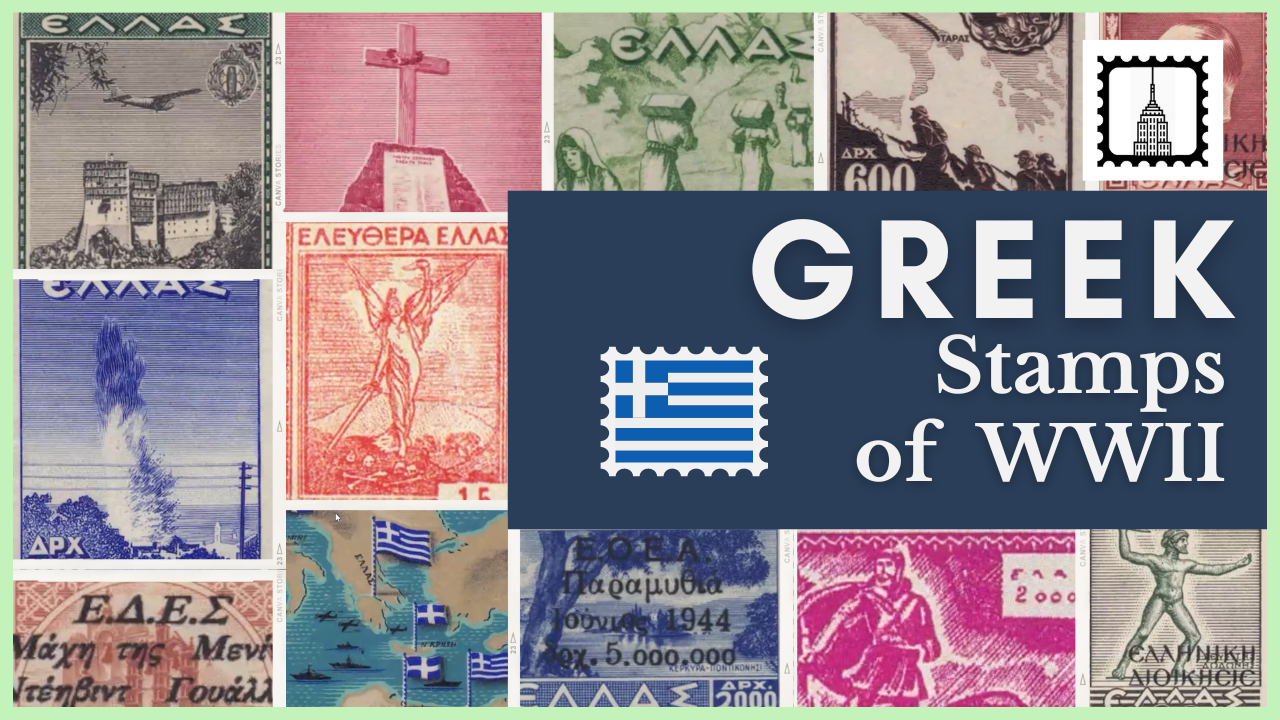
Month: November 2024
-

Greek Philately During WWII: A Study of Occupation, Resistance, and Liberation Stamps
Read More: Greek Philately During WWII: A Study of Occupation, Resistance, and Liberation StampsWorld War II left its mark on nearly every aspect of life in Europe, and Greece was no exception. For philatelists, Greek WWII stamps tell a unique story of national pride, resistance, and eventual liberation. This article explores how stamps from the Greek-Italian War, the Axis occupation, and the post-occupation resistance periods reflect a turbulent…
-

The 1966 World Cup: A Tale of Stamps, Theft, and Triumph
Read More: The 1966 World Cup: A Tale of Stamps, Theft, and TriumphIntroduction The 1966 FIFA World Cup holds a special place in football history. Hosted by England, it was a tournament filled with memorable moments, unexpected twists, and a story that transcended the pitch. Beyond the matches, the event was celebrated worldwide through philately, with numerous countries issuing commemorative stamps. This blog post explores the fascinating…
-

Commemorating the Union – Greece’s 1939 Ionian Islands Stamp Set
Read More: Commemorating the Union – Greece’s 1939 Ionian Islands Stamp SetIn 1939, Greece issued a remarkable set of stamps to commemorate the 75th anniversary of the Ionian Islands’ unification with Greece. These stamps not only celebrate the islands’ incorporation into Greece but also pay homage to the history, culture, and unique identity of the Ionian Islands themselves. In this postscript to his previous presentation, Allan…
-

Understanding the Inconsistencies in the Scott Catalog: A Technical Analysis by Phil Pritchard
Read More: Understanding the Inconsistencies in the Scott Catalog: A Technical Analysis by Phil PritchardThe world of philately is intricate, with layers of complexity that both fascinate and frustrate collectors. One such complexity lies in the use of major and minor catalog numbers within the Scott Catalog, a cornerstone reference for stamp enthusiasts. Phil Pritchard, a dedicated completist collector, delves into this issue, highlighting the challenges and inconsistencies that…
-

The Mystery of the “Frankenstein” Cover: A Lesson in Philatelic Fraud
Read More: The Mystery of the “Frankenstein” Cover: A Lesson in Philatelic FraudCollecting rare covers offers the thrill of uncovering stories from history, but sometimes those stories come with hidden twists. In this blog post, we explore a lesson from philatelist Edward Grabowski, who recently shared a surprising case of philatelic fraud from his New Caledonia Group Type collection. This tale of a cleverly crafted “Frankenstein” cover…
-

The Story Behind the 1959 U.S. Oil Centenary Commemorative Stamp: Honoring the Birth of the Modern Oil Industry
Read More: The Story Behind the 1959 U.S. Oil Centenary Commemorative Stamp: Honoring the Birth of the Modern Oil Industryn 1959, the U.S. Postal Service released a unique commemorative stamp to celebrate the centennial of the American oil industry. Designed with a stark, modern drilling rig, this stamp commemorated the centenary of the first successful oil well drilled in Titusville, Pennsylvania, by Edwin Drake in 1859. Known as the Drake Well, this site marked…
Search
Popular Posts
-
Canada’s Christmas Stamp Varieties: Remarkable Holiday Stamp Finds
Presentation By Arnie Janson Christmas stamps hold a special place in the hearts of collectors, offering a rich history, intricate designs, and occasional printing anomalies that make them even more fascinating. From rare misprints to special editions, each stamp tells a story. In this post, we’ll explore some of the most interesting Christmas stamp varieties,…
-
Identifying 1920s United States Definitive Stamps: A Collector’s Guide to the Fourth Bureau Issue
Why the Fourth Bureau Issue Is So Complex Presentation By: Tara Stewart The Fourth Bureau Definitive Issue (often just called the “Fourth Bureau” or the “Regular Issue”) covers a series of U.S. stamps printed by the Bureau of Engraving and Printing (BEP) from 1922 to 1930. At first glance, many of these stamps share the…







